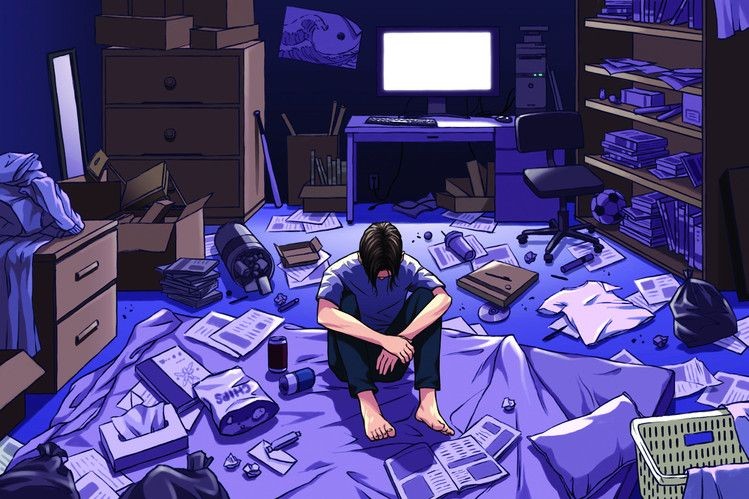
Bed. It is the warmest spot in the house. The mattress is spread across and the velvety-soft bedsheet is tucked in. The pillows and cushions lean effortlessly against the bedpost waiting to soak in the warmth of the tired bodies. What a wonderful sight!
Believe it or not, at least from my observation—humans have positive connotations towards “bed”. Even cats and dogs find every possible way to curl up in the coziest corners. Their nature leads them to favor cushions, pillows, blankets, and beds: the most comfortable and luxurious spots in our houses. For pets, they gravitate toward those sleeping spots simply because they resemble the soft texture of their mothers’ fur. They stand out as the sanctuary where your pet cats and dogs feel safest and protected. What about humans?
There is no place like our bedrooms, for all the world, that allows us to be the most authentic self. Our childhood memories, such as pieces of colorful patchwork woven together with fragments of our past, are buried deep in the bedrooms that we slept in. As time goes by, when we are emerging into adulthood, our beds, which were once known to be our safe haven, become a place to part. This feeling hits close to home for people who happened to be away from their homes to study or work overseas or move out to a different location. The warmest bed that they have ever known grew cold and distant.
But in this article, the idea struck me to look at “bed” in a different way, and it might not be as pleasant as I have described early on. The thing is that many people, including myself, often get drawn into bed, for lack of a better: place for procrastination.
I have been told my whole life that lying in bed except the time for sleep or rest, will make me turn into a lazy inactive person (yet I’m still doing it). This might be true to a certain extent if I lay in bed and study for my exams. Paradoxically, the bed can create an illusion of productivity, i.e. when we lounge in bed with our laptops and books scattered over the bed, we tend to convince ourselves that we can still finish our tasks without sweating a bit. We start to associate bed with a comfort zone where we don’t have to exert ourselves yet think we can accomplish our tasks or duties at ease. In my experience, the first thing that springs to my mind when I hear the word “bed” is how pleasurable it would feel if I throw myself onto it, stretching my tensed arms, and legs, rolling my body to and fro. The next thing I know, my eyelids would surrender to their weight and shut down like the graceful closing of the curtains just like at the end of the play. This is one of those moments when I ended up falling asleep on books or procrastinating a great deal of time by mindlessly scrolling on feeds. This happens one way or another whenever I study or work in bed.
During times when I find myself in a bad spot, overwhelmed by feelings of anxiety and depression, my bed is the only place that I turn to as if it was the sole coping mechanism where I can heal myself from all the negative emotions. Counter-intuitively, it becomes more of a self-destructive behavior than a healing process, blurring the line between reality and illusion. In other words, I would wind up binging on video games or TV shows as a way to distract myself from reality so that it would lower the chances of negative thoughts entering my mind. My brain craves a variety of stimulation and I can’t stop myself from being attached to devices. This kind of self-sabotage will persist and be carried onto the days and weeks ahead—perpetuating our attention span and shortening it to the point when we can’t bring ourselves to sit in a chair and concentrate on our work for longer minutes. On top of that, spending a big chunk of our daylight hours in bed eventually takes its toll on our social life too. Our beds disguise themselves as a hideaway from the outside world, so we don’t have to deal with people, even our family, and social interactions. Talking to people becomes the least desirable thing to do at this point.
So, how can we get out of bed or our distracted headspaces? I don’t have the answer since I’m one of the people who has been going through this productivity mirage. For what it’s worth, we can reward ourselves with a change of scenery whether we rearrange our study places or switch to a different location at our houses or go to the library to provide ourselves with a focused and quiet environment. Chances are that in the library since we are surrounded by other students or occupants who are engaging in their work, it turns out as a source of motivation and collective experience that inspires us to stay on track without being interrupted. Coffee shops are another ideal choice for deep work but they are not recommended if the place is crowded and filled with constant chatters and unbearable coffee machine noises. Whatever the strategy that we use, it is important to keep in mind that getting out of bed is tough if you have a habit of working there. However, I believe that if we shift our working space to somewhere different, our beds will be out of sight for a moment when we are in progress. Don’t forget to ditch your phone as well.
Photo Credit: Yuta Onada https://pin.it/5rSYweP
Excellent job! You made your points super clearly, and your writing style flows very nicely.
@JGComm thanks again for taking your time and evaluating my writings. Constructive feedback is something that I lack in my academic life.